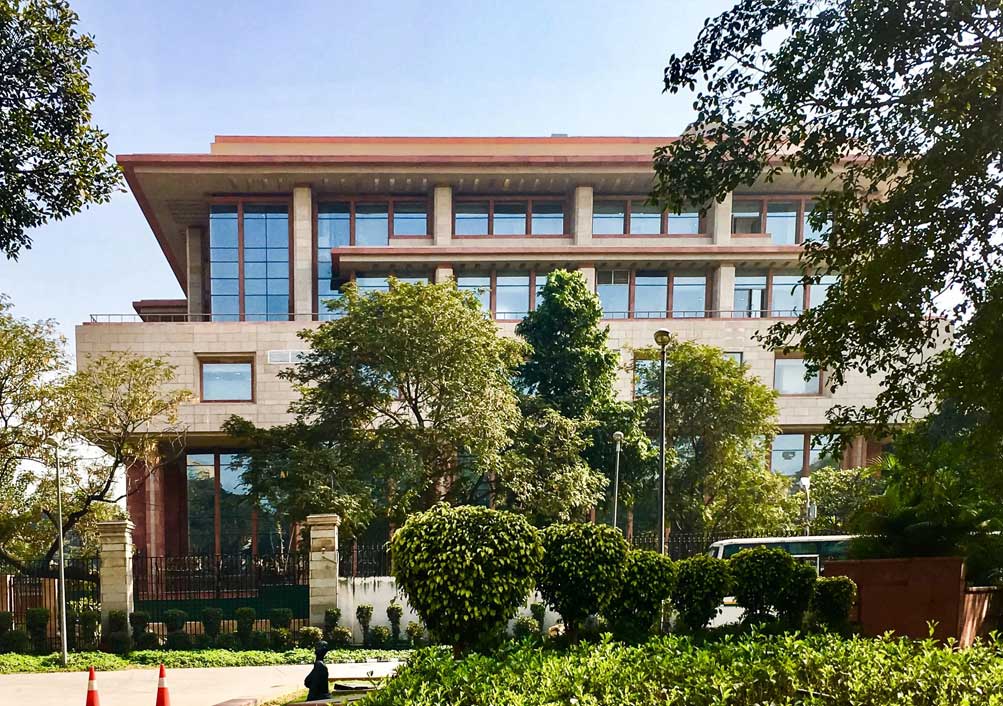In WP No. 14464 of 2018 – BOM HC- Bombay HC sets aside order of removal from service of CISF constable for alleged illegal gratification of Rs 540; says inquiry violated rules of natural justice Justices Dipankar Dutta & M S Karnik [27-6-2022]

Read Order: RAM SAHODAR RAJWADE V. THE DIRECTOR-GENERAL, CENTRAL INDUSTRIAL SECURITY FORCE AND ORS
Mansimran Kaur
Mumbai, June 30, 2022: The Bombay High Court has allowed a petition filed by a CISF constable seeking to quash and set aside the order of his removal from service passed by the disciplinary authority in 2017, and subsequently confirmed by the appellate and revisional authorities in 2018, for gross misconduct for allegedly habitually indulging in illegal gratification.
A Division bench of Justice Dipankar Datta and Justice M.S. Karnik observed that the inquiry was not conducted in accordance with the statutory mandate of clause (b) of sub-rule (18) of Rule 36 of the CISF Rules, and that the disciplinary authority, appellate authority and the revisional authority by failing to notice such infraction of the statutory mandate has occasioned a failure of justice.
The bench observed that reasonable opportunity of hearing is considered to be synonymous to fair hearing and is an important ingredient of the rule of audi alteram partem.
The petitioner in the present case — a constable of the Central Industrial Security Force (CISF) — was removed from service in pursuance of the disciplinary proceedings conducted against him on the ground of misconduct after he was found during a surprise check to have received illegal gratification of Rs 540.
Such order of removal dated November 27, 2017 was made in terms of the provisions contained in Rule 34 (ii) read with Rule 36 of the Central Industrial Security Force Rules, 2001.
Aggrieved by the same, the petitioner carried the said order in an appeal under Rule 46 of the CISF Rules. The appellate authority by an order dated February 5, 2018 upheld the order of the disciplinary authority. In respect of the same, a revision petition was instituted by the petitioner and the order of the appellate authority was affirmed.
Thereafter, a writ petition was filed dated September 26, 2018, a writ of certiorari or any other appropriate writ, order or direction to quash and set aside the orders of the disciplinary authority, the appellate and the revisional authority was prayed by the petitioner. He further prayed for issuance of writ of mandamus in order to direct the respondents to reinstate his service along with all the consequential benefits.
The first charge against the petitioner was with respect to violation of an office order dated February 11, 2010. The charge indicated his involvement in illegal gratification, amounting to misconduct. The second charge was that the petitioner was habitually indulging in illegal gratification thereby amounting to gross misconduct.
In view of the same, the Court took into consideration the testimony of the first prosecution witness. In respect of the same, the Court stated that if the testimony of the first prosecution witness along with the other witnesses present on record is considered, then finding of guilt arrived at against the petitioner based thereon may not have required interference in judicial review proceedings. As it is impermissible for a writ Court to re-appreciate or re-analyse evidence adduced in the departmental inquiry. Reliance at this stage was made on the cases namely, B. C. Chaturvedi vs. Union of India and Ors and Union of India and Ors. Vs. P. Gunasekaran.
However, at the same time, the aforesaid precedents also culled out the proposition that writ Courts are permitted to determine whether the inquiry was conducted in compliance with rules of natural justice.
In view of the same, the Court observed that the exhibit – 02 which was a document purportedly adduced in course of inquiry by the prosecution, could not have been held to be successful in driving home Article of Charge No. 1 against the petitioner. The inquiry officer having returned a finding of guilt ignoring relevant evidence, which the prosecution had adduced, must be held to have erred in law.
“The facet of fair hearing which stems from the opportunity of the nature extended to a delinquent member of the CISF by a provision like clause (b) of sub-rule (18) of Rule 36 of the CISF Rules has to be regarded as an integral part of the principles of natural justice,” the HC observed. In relation to the same, the Court noted that gross infraction of clause (b) of Rule 36(18) of the CISF Rules was the second ground to take exception to the conduct of the disciplinary proceedings.
“A disciplinary proceeding, it is well known, must be conducted in accordance with the governing rules. The procedure postulates that reasonable opportunity of being heard in respect of the charges is given to the delinquent. Reasonable opportunity of hearing is considered to be synonymous to fair hearing and is an important ingredient of the rule of audi alteram partem,” the High Court observed.
In view of the same, the Court noted that not a single question was put to the petitioner in respect of the circumstances appearing against him in the evidence. The Court was, therefore, of “the clear opinion that the inquiry was not conducted in accordance with the statutory mandate of clause (b) of sub-rule (18) of Rule 36 of the CISF Rules, and the disciplinary authority, the appellate authority and the revisional authority by failing to notice such infraction of the statutory mandate has occasioned a failure of justice”.
Additionally, the Court observed that: “The procedural safeguards incorporated in the CISF Rules, which are mandatory in nature, cannot be regarded as waived merely because the petitioner did not raise such issue initially before the inquiry officer and later before the disciplinary, appellate and revisional authorities in view of the several decisions of the Supreme Court…”
Further reliance was placed on a plethora of cases, A.R. Antulay vs. R.S. Nayak, Olga Tellis vs. Bombay Municipal Corporation, Basheshar Nath vs. CIT andUnion of India vs. Tulsiram Patel in order to emphasise upon the right of hearing and upon the non- waiver of fundamental right.
Thus, in light of the aforesaid observations, the Court concluded by observing that there was no reason to sustain the impugned revisional order as well as the appellate order and the order of the disciplinary authority.
The matter was remitted back to the file of the inquiry officer. Direction was issued that from the date of reinstatement and till the time the final order is passed terminating the disciplinary proceedings, the petitioner shall be entitled to subsistence allowance as per law and that the petitioner shall be entitled to retain the official accommodation till one week after the disciplinary authority passes the order.
Sign up for our weekly newsletter to stay up to date on our product, events featured blog, special offer and all of the exciting things that take place here at Legitquest.




Add a Comment